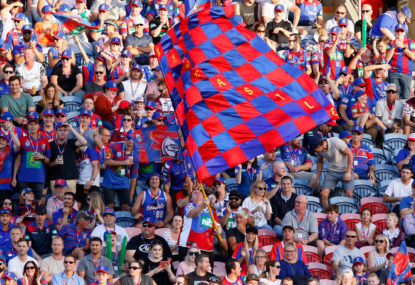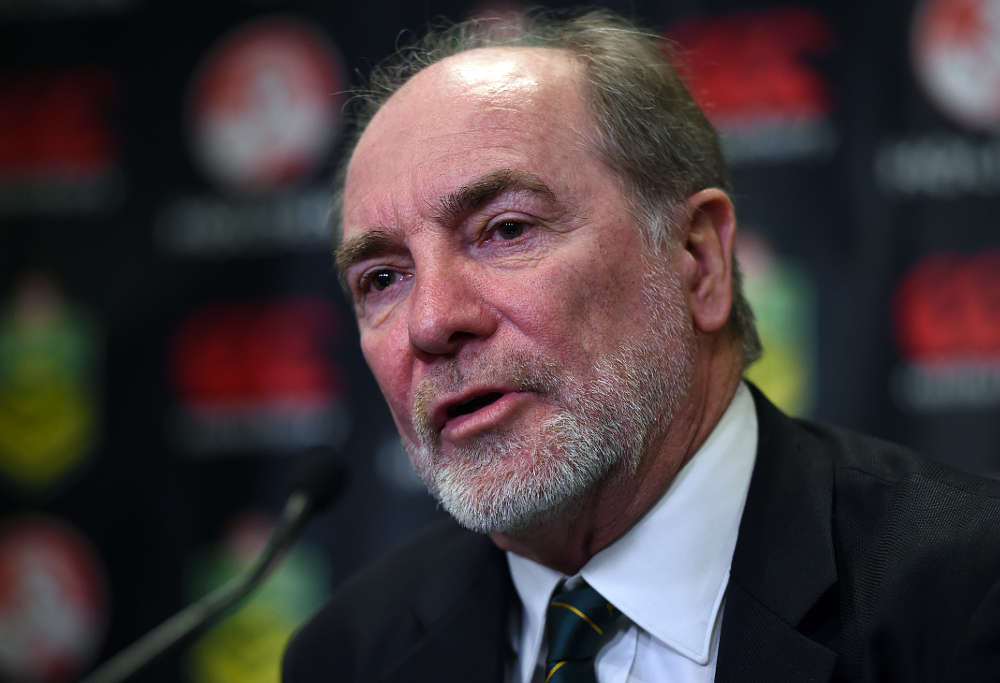NRL Round 7 judiciary: Roosters star duo charged, Eels forward in strife again
James Tedesco will be free for the next game of the Sydney Roosters' inconsistent NRL campaign after escaping suspension for tripping Ryan Papenhuyzen. The…

Australians love a good commission. When there’s corruption, they have a Royal Commission and when there is the threat of corruption in sport, they have everything run by an “independent commission”.
The events over the past few days around the ARLC have been a victory for the commission model. Peter V’landys and Amanda Laing have been added as commissioners while at the same time, the clubs and states failed in their bid for representation when three clubs voted against constitutional reform.
I’d imagine when the word “reform” was first coined, it was neutral in meaning. But it has long since become a positive word, linked with progress and stream-lining.
In that context, this was not reform. This was regression. The state leagues shouldn’t even exist – it should be NRL NSW and NRL Queensland just like it’s NRL Victoria and and NRL WA.
And the clubs, as we all know, are too self-interested to be trusted with the honey jar.
Constitutional “reform” should be swept quietly under the carpet and never be spoken of again.
But when we look at what is happening in rugby league elsewhere, perhaps the commission model – which has just staved off another attack of the self-interest bots – might be a solution.
Imagine an independent commission, free of anyone who has served at a club or at the RFL in the last three years, taking over the sport in England with the imprimatur of Super League teams.

(AAP Image/Paul Miller)
Eddie Hearn could come on board without having an executive role. So could the latest man linked with the RFL CEO role, Everton CEO Robert Elstone, and another contender, Phil Clarke.
Oh, I know the likes of Wigan and Hull would never agree to this – but it’s fun to dream.
And, you know, the independence model didn’t save rugby league in New Zealand, which has just parted with its latest chief executive Alex Hayton. Motu Tony would have been a good replacement but he’s agreed to join Baseball New Zealand.
But if things get nasty between the top Super League clubs and what we used to call Red Hall before the incremental decamp to Manchester was announced, the Independent Commission model might be a useful circuit breaker.
It could be thrown up as a solution when nothing else can be agreed upon.
What about at international level?
Constitutional reform has already been touched upon so that the chairman, Nigel Wood, could become the CEO and an Australian with no official role in the ARLC, John Grant, could become its chairman.
But what if the RLIF had a truly independent commission? People who have not held a role with a national federation for three years, with a variety of skills from a variety of countries?
[latest_videos_strip category=“league” name=“League”]
You’re right. They’d have no authority. But do the former CEO of Super League and the former chairman of the ARLC have authority when they have no connection to those bodies anymore?
Perhaps an RLIF independent commission could liaise with a nuts-and-bolts old school board about delivering on it’s decisions. “We need an umbrella sponsor for all internationals,” says the Independent Commission. “OK, here’s what it will take,” says the traditional board.
The European Federation has just advertised for a director with a certain set of skills who also has connections in the Middle East. Yet the global body can’t do any such thing as it is made up of nominees from the constituent countries.
The kick-off of the NRL at the weekend was an enormous success – great crowds, wall-to-wall media coverage that has gone to another level and good footy.
The Commission model isn’t the disaster some would have you believe. Thank heavens it survives for another year, at least.